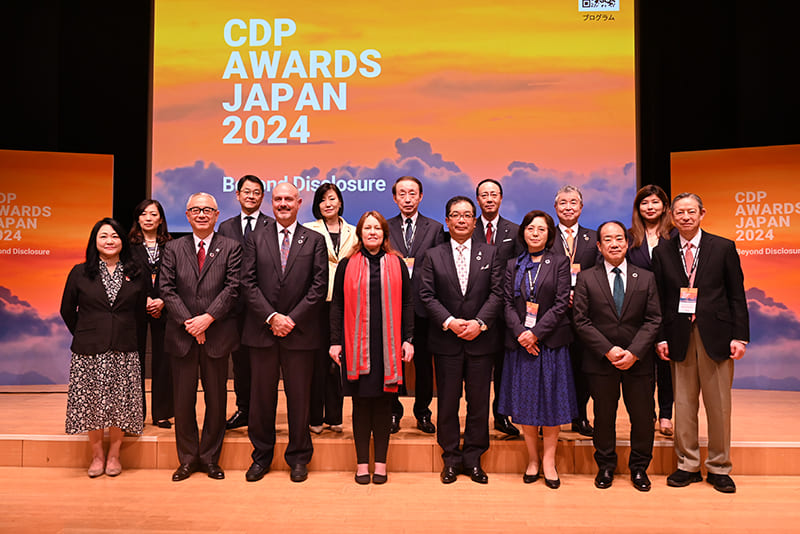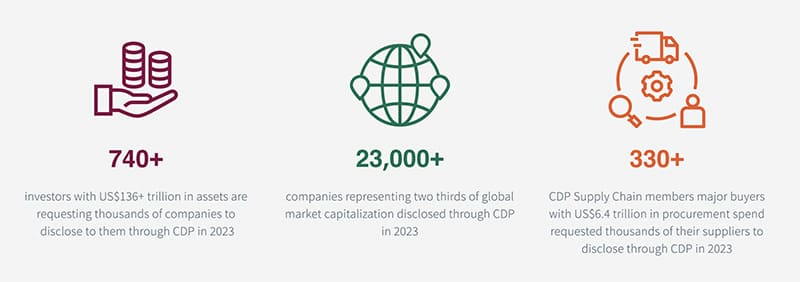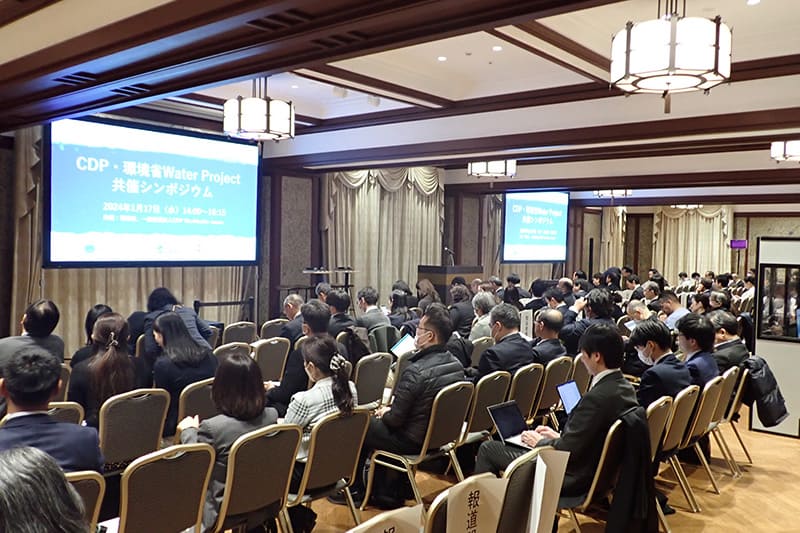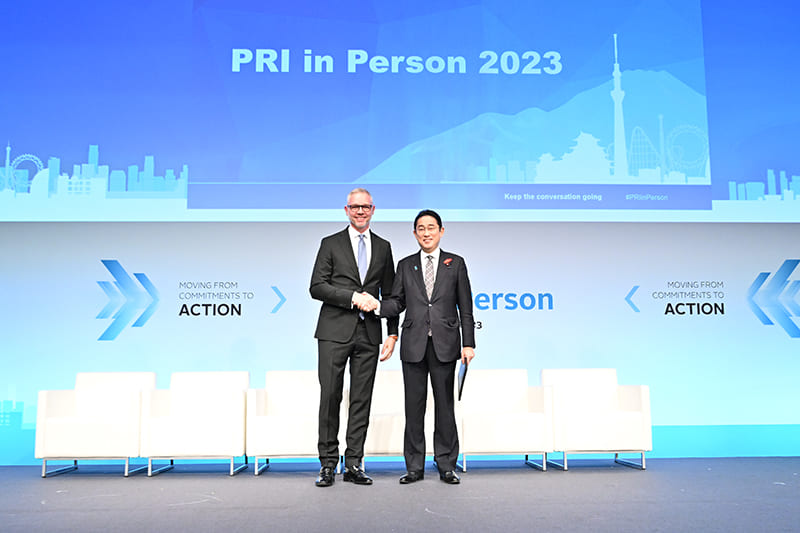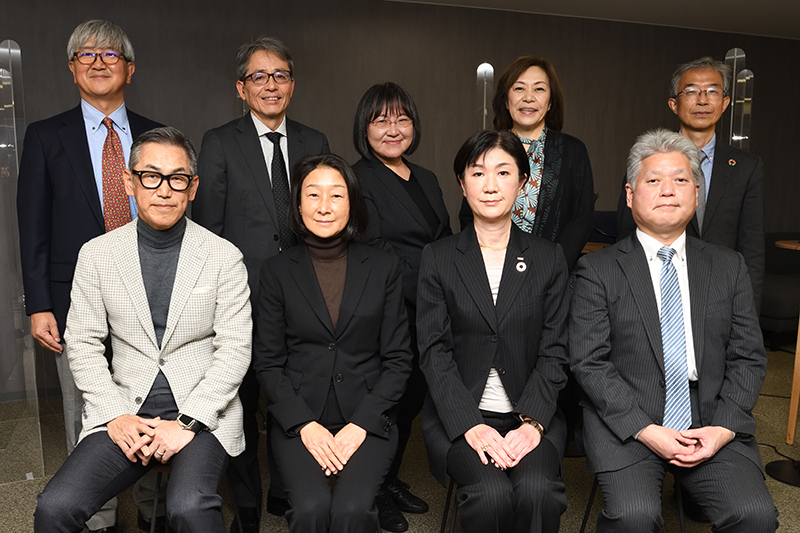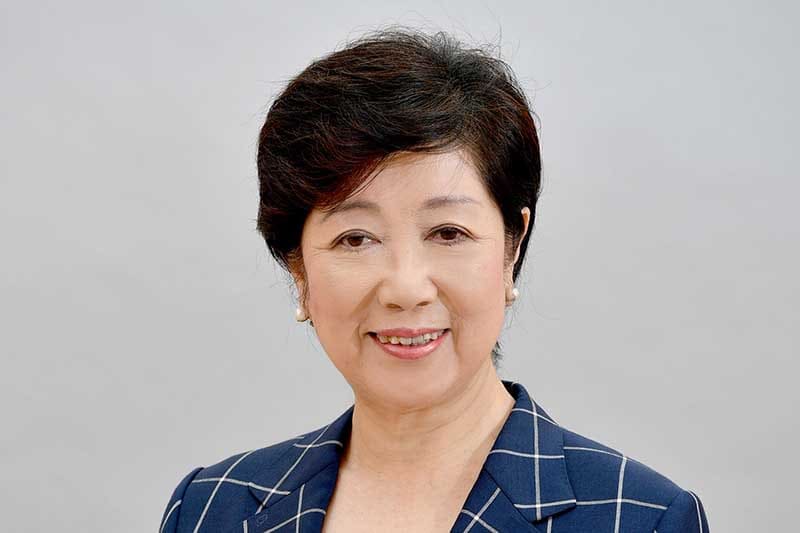June 28, 2024
CDP holds global online event on climate disclosures
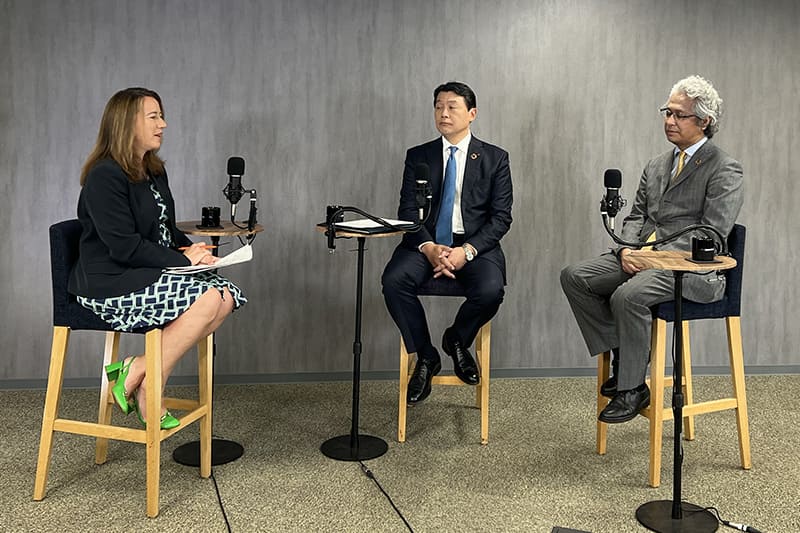
CDP, a London-based nonprofit organization promoting disclosures crucial for assessing companies’ environmental impacts, held a first-time online event on June 4 that highlighted the latest disclosure trends and marked the launch of its new disclosure platform.
As the world struggles to mitigate global warming, companies are under more pressure than ever to make further contributions to the transition to net-zero emissions.
CDP runs the world’s largest environmental disclosure system for companies, cities, states and investors. Based on data obtained through its questionnaires, it scored a record 23,000 companies in 2023 to help them manage their environmental impacts. Out of these, about 2,000 are based in Japan. Established as the Carbon Disclosure Project in 2000, CDP has expanded its target areas from climate alone to biodiversity, plastics and the ocean, deforestation and water security.
The online event, “The Global Disclosure Dialogue,” linked its branches in major cities from Tokyo and Shanghai to London and New York.
Last year was the first in which the limit of a 1.5-degree temperature increase was breached for the entire year. “So it is becoming really important for us to understand as a global society what actions we should be taking in order to be able to bring back climate crisis into sharp relief,” CDP CEO Sherry Madera said in the opening speech, and “We believe at CDP, what you can measure, you can manage.”
It is increasingly important for the private and public sectors to produce sustainable outcomes so they can attract more capital from institutional investors, who are keener on sustainability than ever before. Behind the global trend is the adoption of the Paris Agreement in 2015, which requires signatories to set up long-term goals on reducing greenhouse gas emissions and thereby keep the Earth from warming no more than 1.5 degrees Celsius from the level during the Industrial Revolution. The sustainable development goals (SDGs) adopted at the United Nations in the same year also contribute to the trend.
Madera stressed that this year is significant for CDP. When the nonprofit was founded, it created the entire ecosystem for climate-related data disclosures. “That’s a huge point of pride,” she said in a recent interview with The Japan Times. “But it’s also our history. So, what we need to invest in is our future going forward. And that’s what this year is all about. I call it one of the most important years of CDP’s life cycle.”
Madera said efficiency in CDP’s disclosure system is important for driving corporate action for a sustainable future: “We want to drive down the cost-of-reporting burden by creating efficiency, and that’s why this new system (launched) this year is going to be able to allow us to do more.”
Achieving efficiency is not only for the sake of companies’ own internal use, but also for helping them to secure sales, as their ability to meet sustainability disclosure and compliance criteria makes it possible for institutional investors to invest in them and for buyers in their supply chains to make business decisions. Currently, CDP represents more than 340 of the owners of large companies in global supply chains, which together have a buying power of over $6.4 trillion, she said.
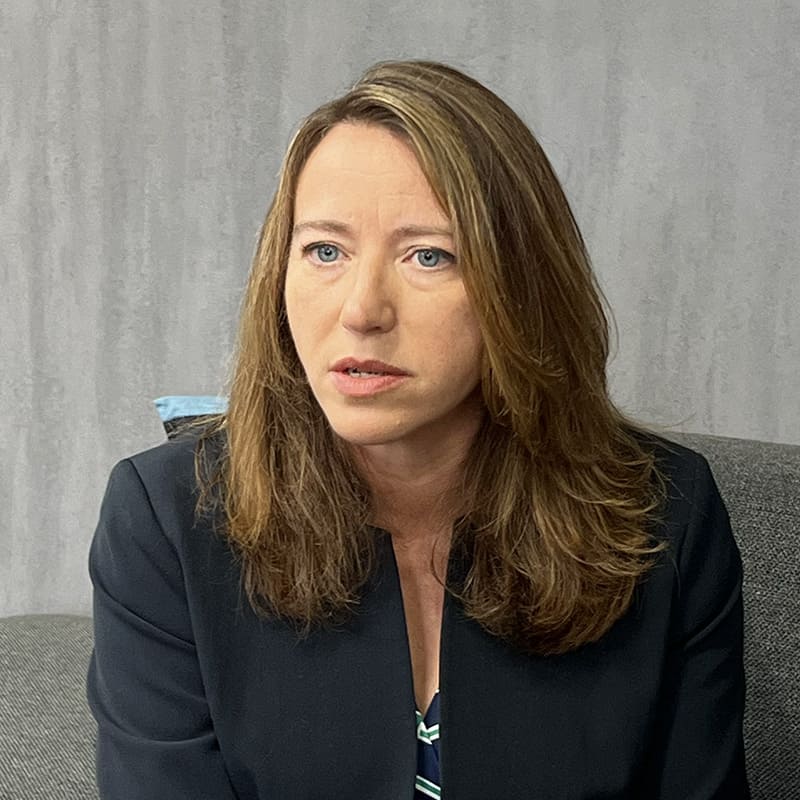
Also, more than 23,000 companies worth a total of more than two-thirds of the world’s market capitalization report to CDP. In Japan, almost two-thirds of the Tokyo Stock Exchange’s Prime market members report to the organization, she added.
During the online event, Madera said CDP is making three major changes in its disclosure platform to enhance efficiency. The first is about the three areas on CDP questionnaires of climate, water security and forests. “This year, we’re bringing them all together. I think it’s a real symbol of the fact that nature and biodiversity are part of climate, and that one efficient disclosure mechanism is going to help us all.”
The second update to CDP’s disclosure platform is to align it with the latest global disclosure standards. The International Sustainability Standards Board (ISSB) issued its first two sustainability reporting standards in June last year. ISSB is an independent body whose standards are viewed as the benchmark in many countries.
“That means that as you are reporting to CDP, you will be aligned with ISSB — and that helps in terms of compliance going forward, and also checking where you’re at today,” she said. Based on the international standards, the Sustainability Standards Board of Japan (SSBJ), established in 2022, plans to finalize the Japanese version by the end of next March.
The last element is to improve practicality. “We’re aware of the fact that reporting climate data is not easy. It’s not free. It takes effort from both the corporate and the public-sector community,” Madera continued. “At CDP, we’re driving efficiency in order to be able to write it to us once and be able to use it for all your different applications, including access to capital, including your own business efficiencies to be able to service your customer requests — and, finally, that element of compliance as it grows.”
In the online event NTT Data explained the strategy and motivations for its sustainability data disclosure. The Japanese provider of IT services has received CDP’s A score, the highest, for two years in a row.
NTT Data is increasingly required to be responsive to global standards on climate and other factors to protect the planet and nature, particularly since 2005, when it started to develop global business. “The CDP questionnaire is in line with global standards and provides us with an opportunity to review our own efforts,” NTT Data’s then-President and Chief Executive Officer Yo Honma said in a dialogue with Madera. Honma became an adviser on June 18.
Honma said, for example, that the process of responding to CDP questionnaires helped the company to realize the significance of science-based data, which prompted it to decide to obtain validation from the Science Based Targets (SBT) initiative, established in 2015 by CDP, the World Wide Fund for Nature (WWF) and other organizations to help corporations set emission-reduction targets based on climate science. In 2020, NTT Data’s targets received SBT approval as 1.5-degree targets, he said.
In a following dialogue with Madera, Satoshi Ikeda, the chief sustainable finance officer at Japan’s Financial Services Agency, talked about the role of CDP in corporate sustainability disclosure. “The sustainability issue has become an integral part of enhancing the enterprise part. So, in that respect, many top-tier Japanese corporations have adopted CDP as a kind of the standard benchmark to assess how they have progressed in terms of disclosure around climate-related issues,” Ikeda said, adding that the trend was enhanced by the advent of the Task Force on Climate-related Financial Disclosures (TCFD). The industry-led task force has published a set of recommendations to develop consistent and comparable climate-related financial disclosures.
“I think CDP has become a yardstick” against which Japanese corporations measure their development on climate-related issues, Ikeda said.
Hiroshi Ozeki, the president and chief executive officer for Nissay Asset Management Corp., echoed this and said, “Sustainability was in the past a better-to-have item, but now is a must-have item.” He said the world needs to tackle this problem for the next generation, especially as climate change has sped up.
Ozeki also said the asset management firm uses corporate data disclosed through the CDP platform when it holds dialogues with companies in its portfolio. “When it comes to our engagement with our investee companies, we present strong emphasis on the long-term stance in our investment,” he said.
Nissay Asset invests in companies that recognize “megatrends” such as the aging of society, climate change, digital transformation, geopolitical risks and global fragmentation. “Among those, climate change is the most critical theme for our investment, especially for the long term,” Ozeki said.
The asset manager encourages companies to disclose more environment-related data, make a commitment to a net-zero goal and draft a concrete plan that can be checked. In the process, both qualitative and quantitative data are used, Ozeki said.
FSA’s Ikeda also emphasized the importance of the kind of megatrends that could affect sustainability because they influence enterprises’ value in the medium and long terms. That is why the Japanese financial watchdog is currently working on the Japanese version of the global standard requirements for domestic companies and financial institutions, he said. The FSA is likely to start mandating in 2027 that the largest companies listed on the Prime market disclose data based on the standards.
“I think corporate behavior is going to change for the better to achieve a business model that would be relevant and effective with a sustainable economic and social system,” Ikeda said.

